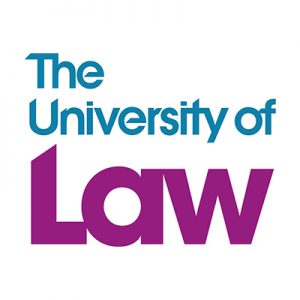An overview of studying law at university

Do I need to study law to be a lawyer?
Studying a law degree (or LLB) at university typically takes three years to complete, however some law schools offer accelerated LLBs, which only take two years.
However, it is by no means a requirement that you study law at undergraduate level in order to become a lawyer. In fact, around half of all newly qualified lawyers hold a non-law degree. Because studying law academically is very different from actually practising law, additional research into the legal profession is required regardless of whether you study law or a different subject at university.
From September 2021, the Solicitors Qualifying Exam (SQE) became the centralised assessment for anyone who wants to qualify as a solicitor in England and Wales. As part of this new route to qualify as a solicitor, a qualifying law degree or law conversion course for non-law graduates is no longer a formal requirement. Instead, you must have:
• A degree (or equivalent) in any subject
• Passed the SQE1 and SQE2 assessments
• A minimum of two years Qualifying Work Experience (QWE)
• Show you are of satisfactory character and suitability
What is an LLB?
The traditional route to qualifying as a lawyer in England and Wales involves three main stages: academic study, vocational study and professional training. The first stage usually takes the form of a qualifying law degree (QLD) — a law degree which includes the seven ‘foundation subjects’ of legal knowledge and has received approval from the Solicitors Regulation Authority (SRA) and Bar Standards Board (BSB). It’s worth noting that not all law degrees have this status, so if you’re planning on becoming either a solicitor or a barrister, it’s worth checking first.
The seven ‘foundation subjects’ are:
● Public law
● Law of the European Union
● Criminal law
● Land law
● Obligations (including contract, restitution and tort)
● Equity and the law of trusts
● Legal research
View a full list of qualifying law degree providers here.
Alongside these seven compulsory subjects, LLB students are also required to select additional law-focused electives. Law schools vary in how they structure their programmes and at what stage students are required to undertake the seven compulsory modules. Some law schools prefer to cover all of the compulsory subjects in first and second year, whereas others allow students to do a combination of compulsory and optional modules spread across the three years. Therefore, it is always best to check the course structure on the universities’ module information page.
Qualifying LLB vs Non-qualifying law Bachelor of Arts (BAs)
If you want to qualify as a solicitor or barrister as quickly as possible, then you should take an LLB with QLD status.
However, many universities also offer a variety of Bachelor of Arts (BA) law degree courses in which law is combined with other subjects such as history, criminology, politics or languages. BAs can be beneficial if you are unsure of law and therefore want to combine it with another subject in order to do a combination of law related and non-law related modules. If, after studying a non-QLD BA, you decide that you would like to be a lawyer, you would first have to complete a law conversion course.
However, it should be noted that there are some law BAs which do have QLD status. For example, Oxford and Cambridge offer law BAs which are qualifying. Equally, some law schools offer the choice of switching from a BA to an LLB in your first or second year. Again, it is best to check the exact details of a course and whether it is qualifying via the university or UCAS website.
What should I know before choosing to study a law degree?
A law degree is a rewarding and intellectually challenging degree, whilst also being well respected among graduate employers.
Some of the main things you should consider when weighing up whether to undertake a law degree include:
Academic interest in law: Practising law and reading it as a subject are quite different. Therefore, if you are thinking of undertaking a law degree at university, you should have an interest in law as a field of study and be aware that the content is academic, rather than practical in application.
Time commitments/study hours: Law students typically spend long hours studying, and the course often involves lengthy reading lists.
The jump from A-Levels to law school: There is a significant jump between essay writing at A-Level and essay writing at degree level. While this is true of all subjects, law schools tend to place particular emphasis on good academic conduct, and often require that students pay close attention to referencing and style guides.
Organisation and planning: Law students typically have a significant number of different deadlines to juggle at any one time and therefore careful organisation and planning skills are essential to ensure a good balance of study and social time.
Preparation for tutorials and seminars: Tutorials/seminars at law school generally require a significant amount of preparation. Often law schools will expect students to spend upwards of eight hours preparing and reading for a single seminar/tutorial.
Competitive nature: Law schools are undoubtedly competitive, and this can be unsuited to some personality types.
The benefits of studying an LLB
Career options: Law is a well-respected degree and opens doors to other careers. For example, many law graduates will go on to pursue careers in general management, human resources, politics etc.
Knowledge base: Undertaking law as an undergraduate may allow you to take modules which cross over with those you could later qualify into in practice. For example, lots of law schools offer electives in employment law, family law, competition law, commercial law etc.
Transferable skills: Law degrees develop highly transferable skills which can make law students ideal candidates for other jobs.
Shared career ambitions: As a law student, you automatically have a close network of individuals who share an interest in pursuing the same career path as you. In turn, there are opportunities here which may be harder to access as a non-law student such as mooting and client interview competitions which are widely available to students studying at the law school.
